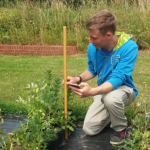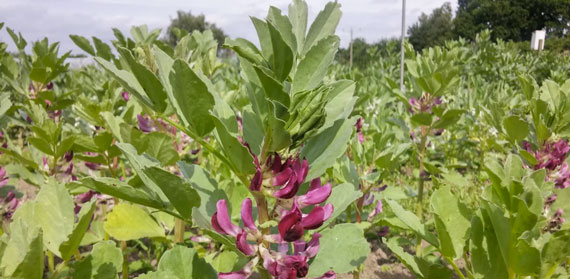Guest post by Davis Kuma, Intern at the Centre for Agroecology, Water & Resilience
I am Davis Kuma and I have finished my first year in Electrical and Electronic Engineering at Coventry University. In the summer time, I am doing an internship in Ryton Organic Gardens to find out the differences between heritage and modern vegetable varieties in terms of pollinator rewards.

Every week I am observing 40 bean plots and making notes of each plot. The soil can have a different nutrient level that’s why we have 40 plots which included 10 bean varieties and each variety have 4 copies.
As time is important in everyone’s life I realised that instead of paper notes which I need to plot in the excel anyway I can use my smartphone and plot the data at the field immediately. It’s definitely more efficient way of collecting data because in one hand I can hold a ruler to measure the height and in the other hand I have a smartphone where I can add the data.
Besides absorbing plots we are collecting beans from the field separately to collect from the roots the nitrogen which is fixated in small root noodles. To find out which bean varieties are better for pollinators (bees, bumblebees) I was monitoring each plot for 10 min and counting how many pollinators do visit the bean flowers, unfortunately, we cannot ask pollinators to go for a flight in the time when it’s needed.
Beside pollinator monitoring, we are collecting the scent of blooms in a concentrated way to find out each variety odour’s difference and possible reasons why some flowers are visited more than others. Collected data will be analysed to see the differences between heritage and modern vegetable varieties in terms of pollinator rewards.
I have to admit in Ryton I have greatest colleges who surprised me on my birthday.





Comments are disabled